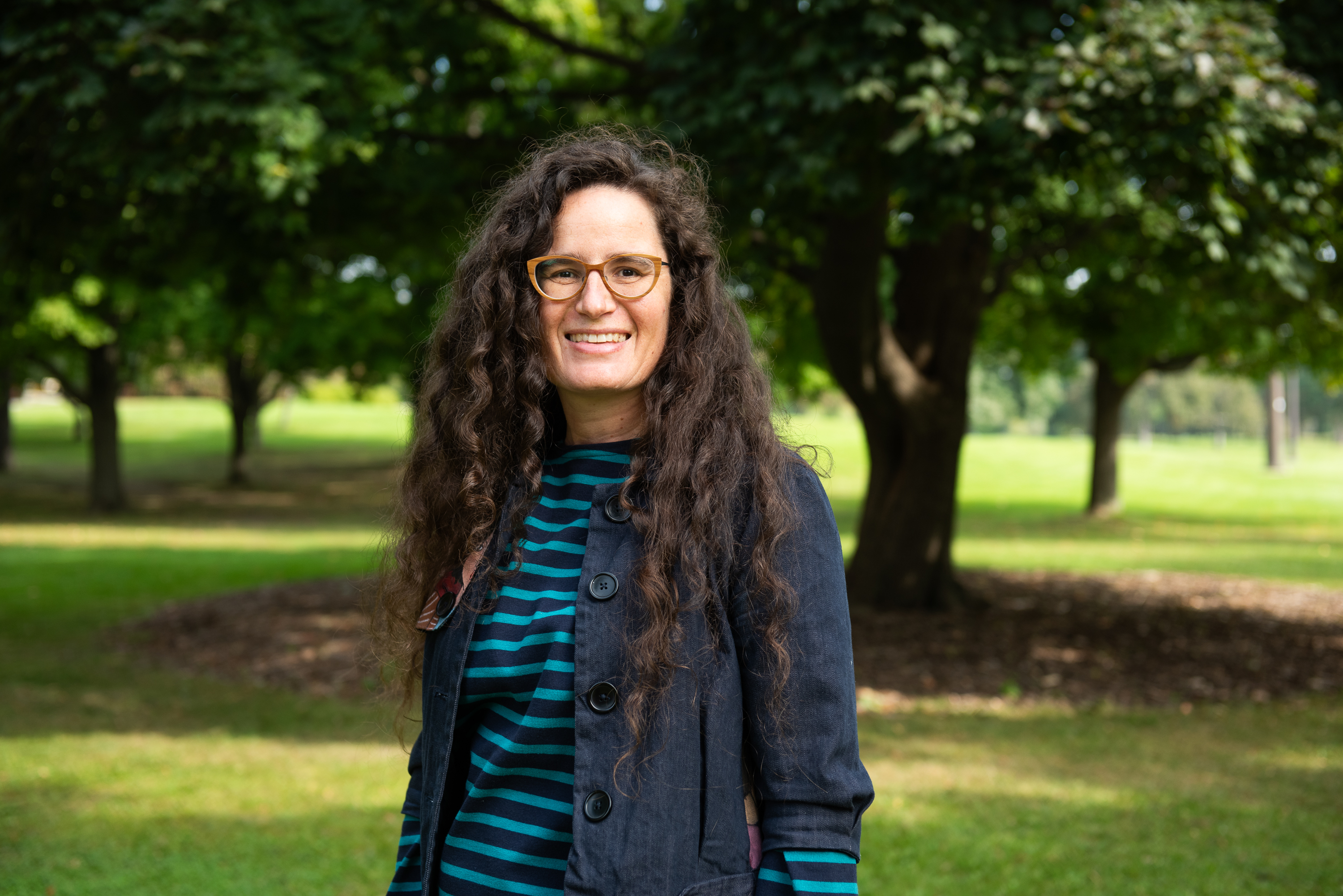
Although Andrea Amado doesn’t come from an agricultural background, she was drawn to farms from a young age. Originally from Argentina, she moved to Sherbrooke, Quebec with her family when she was four. Some of her earliest memories are of visiting farms and connecting with the animals, especially cows and horses. This interest eventually led her to McGill, where she earned a B.Sc. in Agricultural and Environmental Sciences in 2023 and is now in her second semester of the M.Sc. studies in Animal Science with a focus on animal welfare.
Amado said she first heard of the term “animal welfare” during an internship on a farm, where she worked closely with a producer who was passionate about making sure the animals there were well taken care of. This experience sparked her own passion for animal welfare and inspired her to take ANSC 555: The Use and Welfare of Animals in her final undergraduate semester.
“In my last semester, I had space in my schedule, so I decided to take the class. I knew Professor Elsa Vasseur was a pioneer in her field and really wanted to learn more,” Amado recalled.
Interdisciplinary course attracts diverse students

The course, offered at McGill’s Macdonald Campus, explores how animals are used by society in various contexts, including food production, companionship, research and recreation.
“My objective was to create a course that covers the scientific aspects of animal use and also encourages students to think about the welfare of animals: the ethical and philosophical considerations,” Vasseur explained.
“We have students from all different backgrounds, and everyone comes with preconceived ideas. Some want to be vets, some have strong opinions on veganism, for example. The goal of the course is to be able to have a dialogue,” she said, one that challenges preconceived ideas and, ultimately, can inform improvements in regulations and policy.
Another important thing about the course, Vasseur noted, is that rather than just listening to her lecture, the students play an active role.
Each student is given a topic to present on – such as the ethics of using animals at the Calgary Stampede – that the group then discusses in depth.
Making an impression, inspiring a master’s thesis
For Amado, one of the best things about the course was the exposure to diverse perspectives. Her classmates were a mix of undergrads, master’s students and PhD students from various backgrounds and disciplines, which made her think differently about the way we as a society see and treat animals.
“I think after the class, I’m much more open-minded. Before, I wasn’t really interested in fish or insects, just mammals. But the course made me realize that animal welfare doesn’t only involve farm animals, but also lab animals, pets, zoo animals, insects and fish, and that we don’t treat them all in the same way.”
Even though the class was only for one semester, it made a lasting impression and motivated Amado to pursue animal welfare for her master’s degree.
“It really opened my mind about the field and that there’s so much to do. I didn’t want to just do a master’s; I wanted to do something that I cared about and could use moving forward.”
Taking the class also gave Amado the opportunity to work in the CowLife McGill research lab with Vasseur during her undergrad. She is now doing her master’s research there, too.
“If I hadn’t taken the course in my undergrad, I wouldn’t have met Elsa and I wouldn’t be working in the lab. It really helped me make that connection,” she said.
Preparing for a promising career in agrology
Amado said the Animal Use and Welfare course also helped validate her chosen career path. After finishing her master’s degree, she will take the exam to become a certified agrologist with the Ordre des agronomes du Québec and plans to work in animal production, still with a focus on animal welfare.
“I want to work with animals, but I don’t want to work at a desk all day,” she said. “My dream job would be doing something with animal welfare where I can visit farms and speak with producers. I met someone who’s also an agrologist in animal welfare and he helps write best practices and does training on farms, showing producers how to handle cows. I think that’s a job I would really like.”
